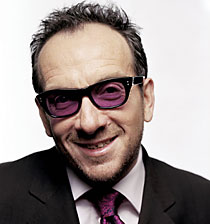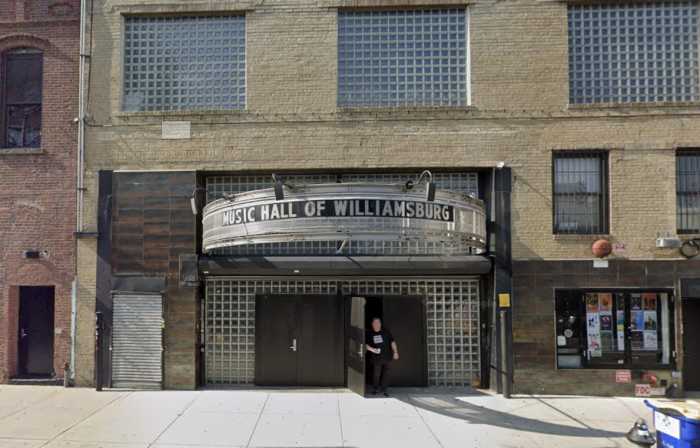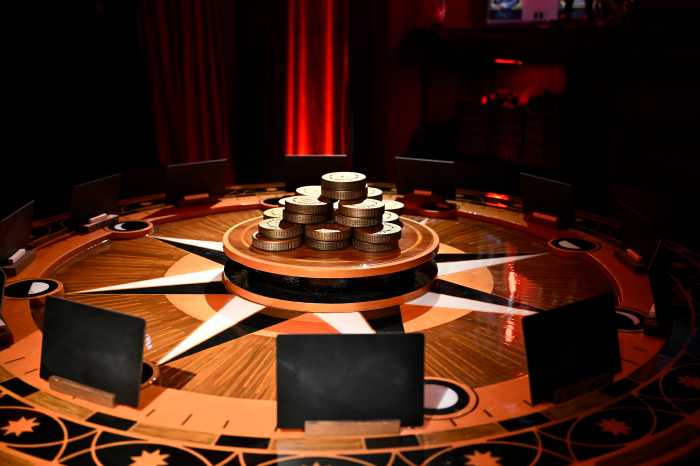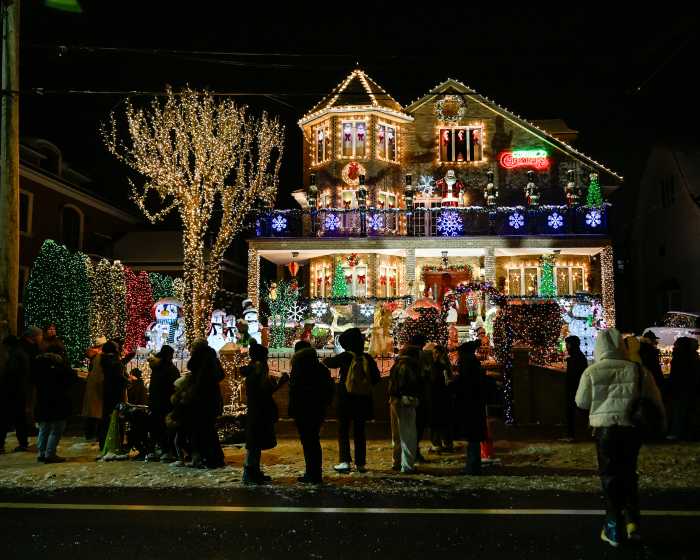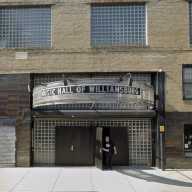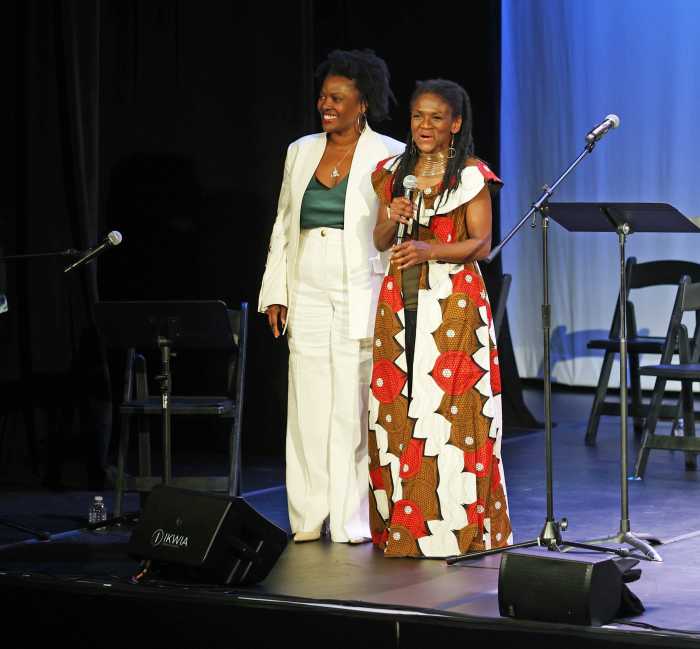For awhile now, the Brooklyn Philharmonic
has been far ahead of its more famous Manhattan cousin with respect
to commissioning and playing new music by gulp living composers.
So it’s really no surprise that the Brooklyn Philharmonic was
tapped to give the New York premiere of "Il Sogno,"
the first full-length orchestral piece by Elvis Costello (at
Avery Fisher Hall on July 17) during the ninth annual Lincoln
Center Festival.
Costello has garnered a fervent following through a nearly 30-year
career, first as a New Wave-punk rocker ("My Aim is True,"
"This Year’s Model," "Armed Forces") then
as a prolific pop songwriter and performer ("Imperial Bedroom,"
"King of America," "Blood and Chocolate")
and, even most recently as a jazz vocalist ("North").
He and his signature band, The Attractions were inducted into
the Rock & Roll Hall of Fame last year.
So how did this collaboration with the Brooklyn Philharmonic
come to pass? According to conductor Brad Lubman, who will be
on the podium leading the orchestra at Avery Fisher, the philharmonic’s
history was the reason.
"It’s a great choice, obviously," he told GO Brooklyn.
"They’re the logical orchestra to play this music, because
of the types of things they’ve done with [former Brooklyn Philharmonic
conductor] Bob Spano and even earlier [with Dennis Russell Davies
and Lukas Foss]. They’ve always had an interesting take on [new
music]."
Lubman, who currently runs the music ensemble at Rochester’s
Eastman School of Music, has been conducting professionally for
more than two decades and has built a reputation for performing
new music.
"I’ve always had an interest in modern music since I’m also
a composer, and this led me to the attention of [avant-garde
composer] Steve Reich, he said. "I worked on the Reich programming
during the 1999 Lincoln Center Festival. So, with all that, I
guess I was a good candidate for doing ’Il Sogno.’"
As for the piece itself, Costello conceived "Il Sogno (The
Dream)" as an hour-long ballet for an Italian dance company
and based it on Shakespeare’s "A Midsummer Night’s Dream."
Another famous composition, by Felix Mendelssohn, was inspired
by the same Shakespeare play, raising the question of similarity.
Lubman had a ready answer.
"There are no comparisons with the Mendelssohn score,"
he said. "There are very few moments that conjure up Mendelssohn’s
music or bring to mind the usual image of fairies running around.
One of the things I like so much about ’Il Sogno’ is the music
for Puck that is first heard in the overture, which has its own
way of sounding devilish, but it doesn’t hearken back to anyone
else, neither Mendelssohn nor Shakespeare."
As more and more pop musicians try their hand at classical music
with varying results – no one remembers Police drummer Stewart
Copeland’s disastrous stab at an opera ("Holy Blood and
Crescent Moon") and Paul McCartney’s full-length "Liverpool
Oratorio" and "Standing Stone" have many marvelous
musical moments that unfortunately don’t sustain their excessive
length – Costello’s entry is particularly ripe for skepticism
from the classical establishment, a point that Lubman readily
admits.
"Some people may meet it skeptically, but the fact is that,
on all levels, this music is the mark of a creative mind,"
he explains. "It’s an absolutely sincere take on what it
means to write music for a ballet, and how to approach a classic
piece of literature and create music for it.
"[Costello] didn’t simply take his style of pop music and
orchestrate it. ’Il Sogno’ defies categorization … there’s
never a moment where you’re saying, ’There’s nothing going on
here.’ I’m impressed with it because the more I listen to it,
the more enchanting, haunting and clever it becomes. There are
obvious moments where there are some jazzy things going on, and
there are other moments where it resembles early Russian ballet,
but it never becomes pastiche."
Lubman, who has listened to Costello’s music since Costello burst
upon the scene as an anarchic punk rocker in the late 1970s,
sees "Il Sogno" as a logical musical progression.
"I always listen to music with an open mind, and I’m not
surprised he’d do something like this," he said. "Some
artists find the one thing they do really well and stick with
that, and others, like Elvis, are more versatile and flexible."
Preparing for the performance, Lubman had minimal interaction
with the composer himself.
"He called me and told me he’d be available if I had any
questions, but since the work’s already been recorded [on Deutsche
Grammophon by Michael Tilson Thomas and the London Symphony Orchestra],
we’re several steps removed from its creation," noted Lubman.
"He said that he’s looking forward to hearing it in a live
concert setting, to hear a different interpretation. But that
was about it: we had a very pleasant phone conversation, then
a few e-mails."
Lubman is most looking forward to the second half of the concert,
after "Il Sogno" is over: following the intermission,
Costello and pianist Steve Nieve will perform songs with and
without orchestral accompaniment.
"It will be a very collaborative evening," Lubman said,
then only half-jokingly added, "I always wanted to be a
rock star."
The Brooklyn Philharmonic will perform
Elvis Costello’s "Il Sogno" at Avery Fisher Hall, at
the corner of Broadway and West 65th Street in Manhattan, on
July 17 at 8 pm. Tickets are $50 and $65. For more information,
call (212) 546-2656 or visit wwwlincolncenter.org.


